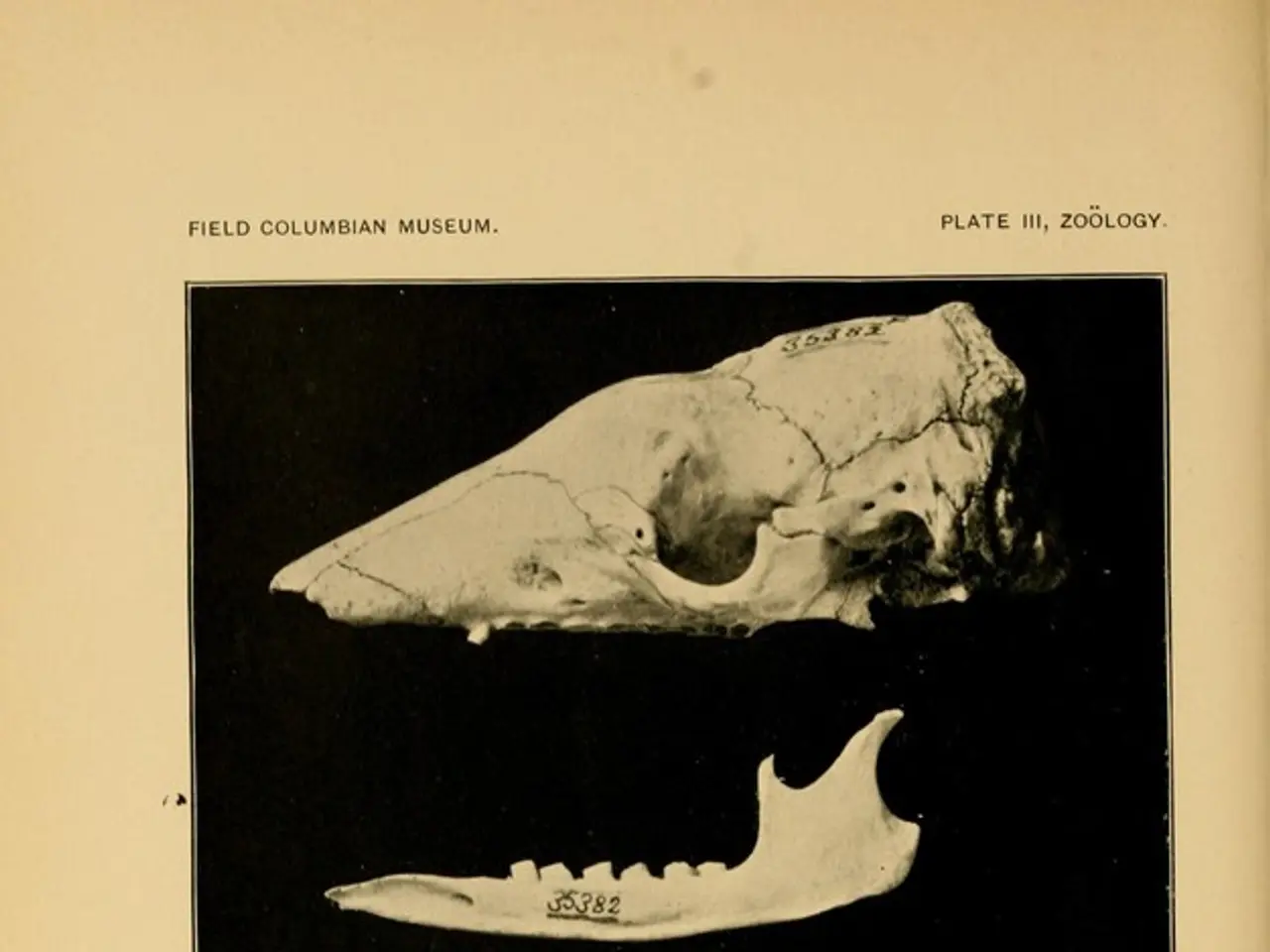Preventing Osteoporosis Prior to Your Upcoming Bone Density Scan
A new study from the University of East Anglia has found that a Mediterranean diet, combined with adequate vitamin D intake, can help improve bone health and reduce fracture risk in individuals with osteoporosis.
The study, which included over 1,000 people between 65 and 79 years old, found that those who adhered to a Mediterranean diet showed improvements in their bone density within a year. The Mediterranean diet, as defined in the study, includes eating lots of fruits, vegetables, whole grains, legumes, nuts, healthy oils like olive oil, and opting for chicken and fish more often than red meat. It also encourages moderate consumption of red wine.
The researchers focused on bone density in the femoral neck, the area that connects the thigh bone shaft to the hip joint. Improving bone density in this area can help prevent hip fractures, which can be particularly dangerous for individuals over 50, especially for those with osteoporosis. One in three adults over the age of 50 who fracture a hip bone die within 12 months.
Half of the participants in the study followed a Mediterranean diet for a year, while the other half ate their usual diet. Those with osteoporosis had better bone density after sticking to a Mediterranean diet for a year. Eating a Mediterranean diet did not affect bone density in people without osteoporosis.
In addition to following a Mediterranean diet, the study participants took 400 IU of vitamin D per day. However, Dr. Cedric F. Garland recommends taking 4,000 to 6,000 international units (IU) of vitamin D per day, especially if one does not get much sun. Taking ample vitamin D, in addition to following a Mediterranean diet, may help prevent osteoporosis and strengthen bone density.
The Mediterranean diet is beneficial for bone health because it provides essential nutrients such as calcium and vitamin D, and it reduces inflammation, which supports bone remodeling. Vitamin D is essential for calcium absorption in the gut, which is crucial for maintaining bone mineral density. Vitamin D deficiency is strongly associated with increased fracture risk and mortality after hip fractures.
Adequate nutrition, including vitamin D, also improves muscle strength, reduces sarcopenia (muscle loss), and lowers fall risk, which is a critical risk factor for fractures beyond bone density alone. Women following a Mediterranean diet combined with physical activity experience less bone mineral density loss, particularly in clinically important sites like the lumbar spine and femur, which helps decrease fracture risk.
In conclusion, adopting a Mediterranean diet enriched with sufficient vitamin D intake supports bone mineral density, reduces inflammation, enhances muscle health, and lowers fall risk, collectively decreasing the incidence of fractures in people with osteoporosis. It is a simple and effective way to improve bone health and reduce the risk of fractures in the elderly population.
- This new study from the University of East Anglia highlights the benefits of a Mediterranean diet for improving bone health.
- The study, involving over 1,000 individuals aged 65 to 79, found improvements in bone density among those who followed a Mediterranean diet.
- The Mediterranean diet, as defined in the study, emphasizes consuming fruits, vegetables, whole grains, legumes, nuts, and healthy oils like olive oil.
- Moderate consumption of red wine is also encouraged in the Mediterranean diet.
- The researchers focused on improvements in bone density in the femoral neck area, which can prevent hip fractures.
- Improving bone density in this area is critical, particularly for those over 50, especially those with osteoporosis.
- Half of the participants in the study followed a Mediterranean diet for a year, while the other half continued with their usual diet.
- Those with osteoporosis showed improved bone density after a year of following a Mediterranean diet.
- The study participants also took 400 IU of vitamin D per day.
- Dr. Cedric F. Garland recommends taking 4,000 to 6,000 IU of vitamin D per day for optimal results.
- Adequate vitamin D intake, in combination with a Mediterranean diet, may help prevent osteoporosis and strengthen bone density.
- The Mediterranean diet provides essential nutrients such as calcium and vitamin D, which support bone remodeling.
- Vitamin D is necessary for calcium absorption in the gut, which is crucial for maintaining bone mineral density.
- Vitamin D deficiency is associated with increased fracture risk and mortality after hip fractures.
- Adequate nutrition, including vitamin D, also improves muscle strength, reduces muscle loss, and lowers fall risk.
- Women who follow a Mediterranean diet combined with physical activity experience less bone mineral density loss, particularly in critical sites like the lumbar spine and femur.
- This combined approach helps decrease fracture risk.
- Adopting a Mediterranean diet enriched with sufficient vitamin D intake supports bone mineral density.
- It also reduces inflammation, enhances muscle health, and lowers fall risk.
- This collective effect decreases the incidence of fractures in people with osteoporosis.
- The Mediterranean diet is a simple and effective way to improve bone health.
- It's particularly beneficial for the elderly population in reducing the risk of fractures.
- Beyond bone health, a Mediterranean diet is also associated with numerous other health and wellness benefits.
- For instance, it can help manage chronic diseases such as cancer, respiratory conditions, digestive health issues, and eye health concerns.
- It can also support mental health, men's health, skin care, and the management of autoimmune disorders.
- In terms of mental health, a Mediterranean diet can help reduce stress, boost mood, and promote cognitive function.
- For men's health, it can support prostate health and reduce the risk of certain cancers.
- For those concerned about skin care, a Mediterranean diet can help maintain skin health and improve the appearance of skin conditions, thanks to its nutritional benefits.







